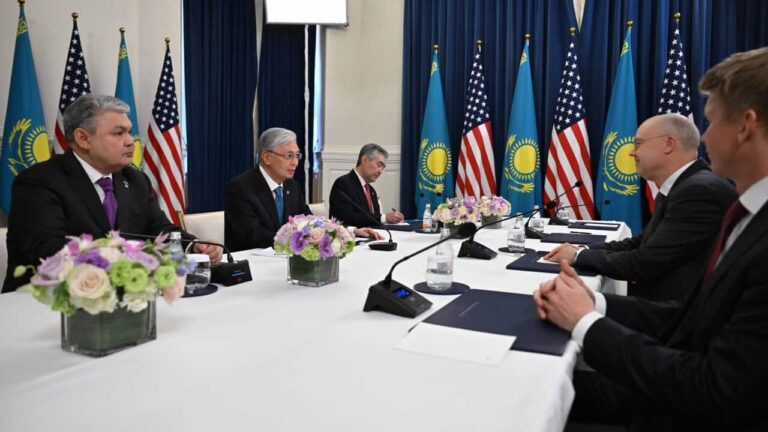
Kazakhstan is going to borrow $350 million from the Asian Development Bank (ADB) and the Asian Infrastructure Investment Bank (AIIB) to facilitate its national economy to rebound from consequences caused by the COVID-19 pandemic that officially ended on May 5, 2023. In particular, the country’s government wants to spend this money on reforming the system of budget management and the financial sector in Kazakhstan, according to the AIIB website.
The country’s application passed through conceptual evaluation on November 9, 2023. The deal is expected to be approved on December 14, while the loan itself must be closed by the end of 2024. The Ministry of Finance of Kazakhstan is indicated as a controlling authority, while the Agency for Regulation and Development of the Financial Market and the National Bank are indicated as responsible for the implementation of the project. Interestingly, the name of Finance Minister Yerulan Zhamaubayev is indicated as a borrower, while the AIIB is a main loan issuer and the ADB is a co-financing entity. Since the ADB follows its policy-based lending rules it has also offered Kazakhstan its budget support for implementing critically important reforms aimed at acceleration of the economic rebound after the COVID-19 pandemic.
The bank, for instance, is going to support reforming Kazakhstan’s fiscal policy in order to boost non-oil revenue, put limits on transfers from the National Fund, strengthen control over internal and external public debt, reach carbon neutrality and improve energy efficiency, as well as reforming the country’s banking sector to boost lending for small and medium-sized businesses, support women’s entrepreneurship, raise the efficacy of the insurance system, disclose information on exposure to ESG risks, etc.
«The program meets priorities set by the government of Kazakhstan as it is gender-oriented and aimed at facilitating the process of finding a solution for the country’s macroeconomic and financial vulnerability to external shocks,» an explanatory note to the document said.
In August 2020, a year after the start of the pandemic, Kazakhstan borrowed $1.75 billion from the ADB and the AIIB to cover its budget deficit. At the time, the ADB allocated $1 billion while AIIB provided $750 million. That loan was issued in euros. The corresponding agreement was ratified by President Kassym-Jomart Tokayev personally. Kazakhstan had taken an obligation to pay off the debt by December 2021. According to the National Bank, as of July 1, 2023, Kazakhstan owed $722.3 million to the AIIB and $1.95 billion to the ADB.
The ADB was established in 1966 by 68 countries, 49 of which are from Asia. The creation of AIIB in 2016 was initiated by Beijing to finance infrastructural projects in the region. Among shareholders of the AIID are more than 100 countries. China, India and Russia control the biggest stakes in the organization: 26.06%, 7.6% and 5.98%, respectively.













